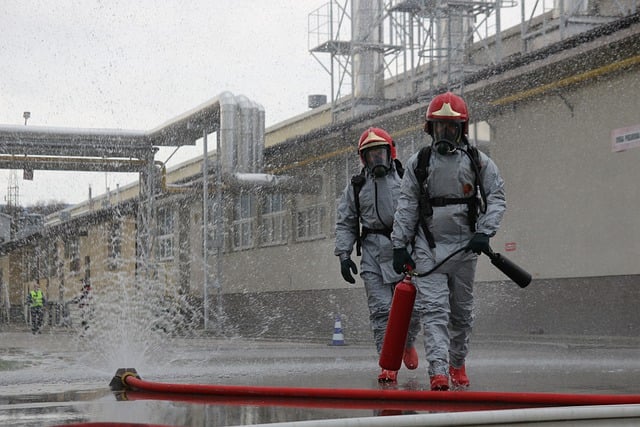Discover Police Impound Cars for Sale
Police impound auctions present opportunities for budget-conscious car buyers to purchase vehicles at potentially reduced prices. These auctions feature cars that have been seized, abandoned, or confiscated by law enforcement agencies and are sold to recover storage costs and clear impound lots. Understanding how these auctions work and what to expect can help buyers make informed decisions when exploring this alternative vehicle purchasing method.

Step-by-Step Guide to Police Auction Car Buying
The process of buying from police impound auctions requires preparation and understanding of auction procedures. First, locate upcoming auctions through local police department websites, municipal auction sites, or third-party auction companies that handle government surplus sales. Most jurisdictions announce auctions several weeks in advance, providing vehicle lists and inspection dates.
Registration typically occurs before auction day, requiring valid identification and sometimes a refundable deposit. During pre-auction inspections, examine vehicles thoroughly as most sales are final with no warranties or guarantees. Check engine condition, body damage, interior wear, and ensure all necessary documentation is available. Bring a mechanic if possible, as test drives are rarely permitted.
On auction day, arrive early to review final vehicle additions and set firm spending limits. Auctions move quickly, and emotional bidding can lead to overspending. Successful bidders usually must pay immediately or within 24-48 hours, often requiring cash, certified checks, or money orders.
Affordable Vehicles from Police Impound Auctions
Police impound lots contain diverse vehicle types, from economy cars to luxury vehicles, motorcycles, and commercial trucks. Seized drug-related vehicles sometimes include higher-end models, while abandoned cars tend to be older or damaged vehicles. The condition varies significantly, ranging from well-maintained cars with minor issues to vehicles requiring substantial repairs.
Auction prices often start below market value, but competitive bidding can drive final prices higher than expected. Factors affecting pricing include vehicle condition, age, mileage, and local demand. Popular models and reliable brands typically generate more bidding activity, while specialty vehicles or those needing obvious repairs may sell for lower amounts.
Buyers should research comparable vehicle values beforehand using resources like Kelley Blue Book or Edmunds to establish realistic bidding limits. Remember that additional costs include auction fees, registration transfers, immediate repairs, and potential towing if the vehicle cannot be driven from the lot.
How to Find the Best Deals on Impounded Cars
Successful impound car buying requires strategic planning and realistic expectations. Research auction schedules across multiple jurisdictions, as different areas may have varying inventory and competition levels. Smaller municipalities sometimes offer less competition than major city auctions.
Focus on vehicles that other bidders might overlook, such as older models, higher-mileage cars, or those with cosmetic damage but sound mechanical condition. Specialty vehicles like commercial trucks or motorcycles may attract fewer bidders if local demand is limited.
Develop relationships with auction staff and regular attendees who can provide insights about upcoming inventory and bidding patterns. Some auction companies offer email newsletters or online previews that help identify promising vehicles before inspection day.
Consider the total cost of ownership beyond the auction price. Factor in immediate repair needs, registration fees, insurance costs, and potential ongoing maintenance for older or previously neglected vehicles.
| Auction Type | Provider | Cost Range | Key Features |
|---|---|---|---|
| Municipal Police Auctions | Local Police Departments | $500-$15,000 | Direct government sales, varied inventory |
| Online Government Auctions | GovDeals, PublicSurplus | $300-$20,000 | Convenient bidding, wider selection |
| Live Auction Houses | Manheim Government Services | $800-$25,000 | Professional auctioneers, inspection services |
| Sealed Bid Sales | Individual Agencies | $200-$12,000 | Private bidding, less competitive |
Prices, rates, or cost estimates mentioned in this article are based on the latest available information but may change over time. Independent research is advised before making financial decisions.
Important Considerations for Impound Car Purchases
Before participating in police impound auctions, understand the legal and practical implications. Verify that vehicles have clear titles and no outstanding liens, as some impounded cars may have complicated ownership histories. Most auctions provide title information, but buyers should confirm details before bidding.
Budget for unexpected expenses beyond the purchase price. Impounded vehicles may need immediate repairs to pass safety inspections or emissions tests required for registration. Some cars have been sitting for extended periods, potentially causing battery, tire, or fluid system problems.
Consider transportation logistics for non-running vehicles. Auction sites typically require prompt removal, sometimes within 24-48 hours. Arrange towing services in advance if purchasing vehicles that cannot be driven immediately.
Police impound auctions offer opportunities for finding affordable vehicles, but success requires preparation, realistic expectations, and thorough research. While deals exist, buyers must carefully evaluate total costs and potential risks associated with purchasing previously impounded vehicles through auction processes.



